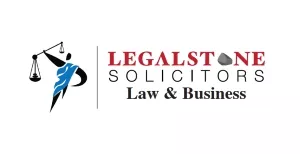- within Corporate/Commercial Law topic(s)
- in United States
- with readers working within the Metals & Mining industries
- within Corporate/Commercial Law and Privacy topic(s)
Over the years, Ghana has focused on building a sustainable economy and attracting foreign investments. To improve the ease of doing business, the country has implemented significant changes with the introduction of the Companies Act, 2019 (Act 992), which replaces the old Companies Act of 1963 (Act 179). Act 992 aims to create a supportive environment for business growth and development.
The Government of Ghana is committed to fostering a business-friendly environment to attract more foreign investments, leveraging the country's rich natural resources, including gold, oil, and cocoa, which are key export commodities.
Ghana has been recognized as one of the most attractive countries for doing business in Africa. The establishment of the Secretariat for the African Continental Free Trade Area (AfCFTA) in Ghana has created opportunities for an export-led economic program, promoting access to both existing and new markets for Ghanaian goods and services.
This article aims to provide insights into how investors can conduct business in Ghana, particularly through the registration of limited liability companies.
Registering a Limited Liability Company in Ghana
The Companies Act, 2019 (Act 992) and the Ghana Investment Promotion Centre Act, 2013 (Act 865) are the two central legislations governing the establishment of companies with foreign interest participation shareholding in Ghana.
A limited liability company in Ghana limits its members' liability to the amount unpaid on their shares.
Processes for Registering a Limited Liability Company
- Conduct a Company Name Search at the Registrar General's Department (RGD).
- Obtain a Tax Identification Number (TIN) for company directors, secretaries, and auditors.
- Complete company registration forms and submit documents at the Registrar of Companies. Pay 1% of the company's stated share capital and the registration fee to obtain a company incorporation certificate.
- Register with the Ghana Investment Promotion Centre (GIPC)as it is mandatory for a foreign company after its incorporation and before commencement of operations, to be registered with the GIPC.
- Register with the Ghana Revenue Authority (GRA) for tax payments and obtain a tax clearance certificate.
- Register with the Social Security and National Insurance Trust (SSNIT) to pay contributions for your employees.
- Obtain a business operating permit from the Metropolitan, Municipal or District Assembly your company is located at.
- Register with the Data Protection Commission (DPC) as it is mandatory for companies who collect data to obtain a license from the DPC.
- Open a business account.
It is worth noting that, in Ghana, foreign investors are required to comply with the GIPC Act, 2013 (Act 865) regarding minimum foreign capital requirements either in cash or in capital goods relevant to the investment; or a combination of both. By way of equity participation, the breakdown is as follows:
- US$200,000.00 for Joint Venture with the Ghanaian partner having not less than 10% shares.
- US$500,000.00 for wholly foreign-owned companies.
- US$1,000,000.00 for General trading companies with a minimum of 20 skilled Ghanaians employed by such an enterprise.
Exceptions to the Minimum Capital Requirements
There are specific exceptions to the minimum capital requirement as outlined in the GIPC Act:
- Manufacturing and export trading (for locally manufactured goods)
- Portfolio investment businesses.
Sector Specific License
Certain industries require specific licenses before foreign investors can commence operations. These sector-specific regulations ensure that businesses adhere to industry standards and manage environmental resources responsibly. For example, business entities wishing to engage in mining activities must obtain a license from the Minerals Commission and the Ministry responsible for Mines and Natural Resources. However, where an individual intends to engage in the trading and marketing of gold dore bars, that individual must obtain a licence from the GoldBod.
Those looking to enter the gaming sector must acquire a license from the Gaming Commission of Ghana.
The Bank of Ghana (BOG) supervises banking and financial institutions and, therefore, issues the necessary licenses for those sectors.
Additionally, the National Communications Authority and the Energy Commission issue licenses for businesses in the telecommunications and energy sectors, respectively.
Like in many other countries, non-citizens may need a work permit and a residence permit from the Ghana Immigration Service (GIS) to stay and do business in Ghana. Foreign investors who meet a minimum capital threshold are guaranteed an automatic expatriate quota or permit, as stipulated by the GIPC Act and other relevant laws. This means that by making qualifying investments, these foreigners can apply for work and residence permits.
Foreign investors in Ghana are also expected to comply with various taxes, duties, and levies. These include Corporate Income Tax (CIT), Value-Added Tax (VAT), National Health Insurance Levy (NHIL), Ghana Education Trust Fund (GETFund) levy, Covid-19 Health Recovery Levy, excise duty, customs tariffs, and other levies.
Conclusion
Ghana, as the host country for the Secretariat of the African Continental Free Trade Area (AfCFTA), is recognized as one of the best environments for investment in Africa.
Foreign investors are encouraged to familiarize themselves with the laws and regulations that govern business incorporation in Ghana and to ensure they comply with these requirements.
It is crucial for foreign investors to obtain expert legal advice to navigate the complex legal and regulatory requirements involved in the incorporation process in Ghana. Legalstone Solicitors PRUC has extensive knowledge and experience to assist foreign investors in establishing a company and engaging in regulatory sectors in Ghana.
The content of this article is intended to provide a general guide to the subject matter. Specialist advice should be sought about your specific circumstances.


